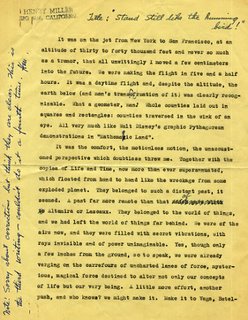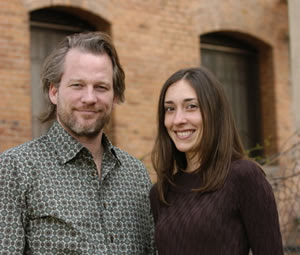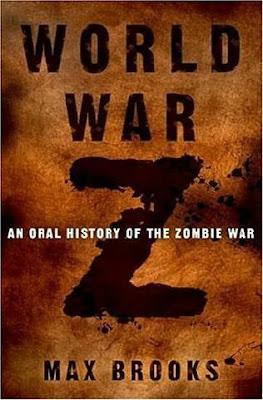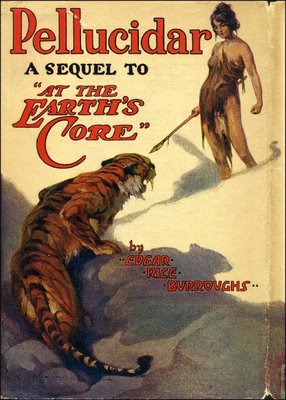Cecil Castellucci on Art, Transformation,
and Not Being Boy Proof
interview, Cecil Castellucci &
Neal Romanek
CECIL CASTELLUCCI has fronted punk bands, has written, directed, and acted in theater and film, has encouraged and coached fellow artists with enterprises like L.A.'s Alpha 60 filmmaking collective, and has an extensive resume as a journalist writing about media and media technology. She is not just a role model for the teens she writes for, but also for a whole generation of cross-platform authors.
Her novels, "Boy Proof", "The Queen Of Cool", and, most recently, "Beige", feature teen characters caught between worlds, on the cusps of a transformation. She was a natural choice to write the debut graphic novel in DC Comics' new "Minx" line of comics for teen girls. "The Plain Janes", illustrated by Jim Rugg came out this May to critical acclaim and is the flagship book for a whole new division of DC.
I talked with Cecil, while she was holed up in Amherst, Mass. with fellow writers, a dog, and a boyfriend.Neal Romanek: So what are you up to in Amherst?
Cecil Castellucci: I came to Amherst to write. I am secluded in a house where my friend - boy friend - is house sitting, and there is a dog and a large yard and lots of food and wine and great conversation. We go into town and sit in a cafe with a bunch of other writers - and we write and write and write.
NR: You seem reluctant to use the word "boyfriend".

CC: No, I just never had a boyfriend before. And so I didn't know how to say it! I am usually an old maid! It's all so new! And this is the first interview where I say "I HAVE A BOYFRIEND!"
NR: Congratulations! But you've had boyfriends before.
CC: Never! Okay, yes. But a really long time ago. I have always been more Emily Dickinson than AnaÏs Nin.
NR: You and Jen Sincero devised a play you performed in Los Angeles called "Spinster".
CC: Exactly!
NR: Why the caution?
CC: Because it's so new. But I am so in love
NR: You're feeling like a teen.
CC: Yes.
NR: You write about teens, and for teens. If you settled down with a 9-to-5 and behaved sensibly and married a doctor, would you fear losing touch with that Cecil-teen?
CC: Yes. That's why I could never settle down with a regular type. Or if I did, then I would be the kooky wife and put glow-in-the-dark stars on everything and eat only popsicles.
NR: It seems like there is a theme of "settling down" - or avoiding settling down - or having to cope with it in some way - in your novels and also in "The Plain Janes". There's relocation. Or dealing with a new environment or new paradigm.
CC: Yes. Isn't that always the way things are? Big or little, there is always transformation. But I think that settling down, sometimes people think that's scary. But it's not. It's just settling into yourself, becoming who you really are.
NR: And maybe finding that someone who understands who you are.
CC: Yes.
NR: Or understands at least, who you're not.
CC: In "The Queen of Cool", the dad character has settled into someone that he thinks he is supposed to be. So has Libby, the main character. She has settled into being the "cool" girl. But then they both transform into their real selves.
NR: And they're transformed through a relocation, right? Or she is.
CC: Libby's transformed by doing a science internship at the zoo.
NR: And the zoo is that new "Special World", where she has to set aside that old self. It's a great location choice, because it's the same with the animals, who've been relocated too.
CC: Yeah! I never thought of that! I had thought of it as a clear and simple way to talk about cliques. Like the gorillas and the zebras and the lions all hang out with each other but still they are all in the zoo. Kind of like the cool kids and the nerds all in the same school.
NR: And every type has a specific name, habits, routine that is expected of them. But your own growing up seemed to be really free of conventional restraints, yes?
CC: Yes. I never had chores. I never had curfews. My parents were - are - research scientists. And French. So, you know, it was a free for all! Also I didn't go to a typical high school. I went to the Laguardia High School of Performing Arts.
NR: What kind of science did your parents do?
CC: My dad was a neurobiologist. My mom was a molecular biologist. And genetic engineer. They still are.
NR: That's fascinating, because both those professions would seem to be about trying to control and manage life. A little discouraging of the artistic impulse.
CC: I think that they are very similar to being an artist. With neurobiology, my dad studies the mechanics of memory, which I think is beautiful and poetic. My mom studies genetics, the building blocks of life and the pieces that make us human. And isn't that what we do as artists? Study memory and also try to figure out what makes us human? I think so.
NR: You're right! And also there is the discpline in both science and in art to label a thing correctly and precisely. That's kind of the beginning of art – or of writing, at least. To name a thing exactly.
CC: Also in both there is a need to think very creatively and outside of any boxes. Growing up, my parents were always going to the lab to do their experiments. That's what I do. Experiment. Only it's with stories. Artists and Scientists are people who have very similar hearts.
NR: People always talk about the temperamental & suffering artist. But they don't talk about the suffering scientist, do they?
CC: They talk about the mad scientist!
NR: Yes! Of course!
CC: Same thing, different manifestation.
NR: Dr. Frankenstein.
CC: Exactly!
NR: ... aka Mary Shelley herself.
CC: And Dr. Jekyll.
NR: And Prospero.
CC: Yes.
NR: Prospero, who is both artist AND scientist.
CC: See! Shakespeare agrees!
NR: Do you use many actual incidents from your life when you write? Is there ever any memoir element?
CC: Yes, but the facts become so warped and changed that they are hardly recognizable as any real thing. It's the visceral emotional element that is more interesting to me. But I can point to many places and be like, "this is where that comes from.". It might be interesting to annotate and dissect a book like that one day. Describe where each idea originated.
NR: Could you give an example?
CC: Like in "Boy Proof", the mom comes from a slight combination of Jennifer Aniston's mom, who always said, whenever I was sleeping over at her house in High School, "How can you leave the house without your faces on?" if we didn't wear make up. And also my friend Chastity Bono's mom, Cher, who was making a comeback at the time. Both those girls were friends of mine in high school, I'm not in touch with them now, but their moms certainly gave me a seed of something and I can see tiny elements or threads of those ladies in Egg's mom. There are not any specific traits I used, but there is a certain something that I was inspired by.
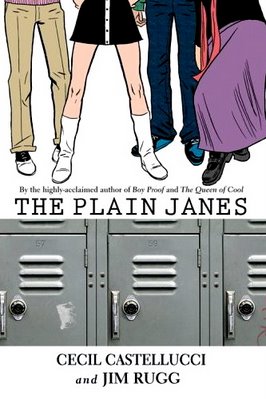
And as far as "The Plain Janes" goes: I myself was in a terrorist bombing when I was very young. It has always affected me. Always marked me. But there is no similarity to the events in "The Plain Janes" and my experience. I could never understand why someone who didn't know me, the IRA, would want to harm me. And I couldn't understand why someone would do something so ugly. And I struggle to find beauty in everyone and everywhere because of it. I was 9, I was in Belgium at La Grand Place, it was like, the 2000th birthday of Brussels or something. The British Army Band was playing in the square. The IRA put a bomb under the stage. I was in a beer museum, not drinking. The stage had been empty five minutes before, and I had been dancing on the empty stage. Five minutes later, when I was in the museum, the stage blew up. The museum was the most damaged building. A window fell on me. It was very frightening. I'm still affected by it. Obviously it's much better now, but I still struggle with that fear that anything could happen at any moment. And people could just start screaming ... I don't like thinking about it. Anyway, all that to say, that yes, there are elements of my real life in my books.
NR: Thanks for sharing that.
CC: I think that's your job as an artist, to take and mold and twist and glean and use your experiences to try to reach out and find a universal human truth. I also think it is your job as an artist to go out and have a lot of experiences. To eat, love, live, dance, jump, cry, scream, kiss, drink.
NR: There does seem to be in your stories an echo of being blasted out of the world. And then trying to find a way back to it.
CC: Yes. That's a good way of putting it.
NR: In "The Plain Janes, the solution to the trauma - not literally, but at least the thing that happens after the trauma -...is the bringing forward of the arts. Creativity. And trying to help others with it. Did you get any of that in your own experience at La Guardia? I envision lots of couches and fingerpaint and hippy teachers with no bras.
CC: Well, creativity has always been my answer to everything. Sadly there were no couches and hippy teachers with no bras. I wish it had been that bohemian. I longed for that growing up.
NR: It sounds very romantic. But how was it really?
CC: There was a crazy kind of fabulous teacher named Mr. Anthony Abeson. He had us doing yoga poses and officially he taught drama, but it was more like he taught how to look at the world and live life as an artist. He was always quoting someone, but once he said - I don't know if it is him or someone else - but he said, "'In general' is the enemy of all mankind."
NR: Again - art is the attempt to name a thing exactly and precisely.
CC: Exactly. That's a life lesson that I still think about at least once a day.
NR: What I imagine is that you might in that environment learn how to integrate art into your daily life more. Learn how to make it a part of your daily work.
CC: I think that, for me, that did work like that. Because half our day was art, and half our day was academics. So it just really was the same thing. They informed each other for me. I also learned from another teacher of mine - a Russian from the Moscow Arts Theater, Mr. Marat Yusim - that to be a great artist you must see a lot of great art. So I made it my mission in high school to go see a lot of plays, movies, museums, and also to read a lot of books and plays. That was all because I was interested in stories. I've seen and read a lot, but I still feel as though I am so far behind and have so much more just basic stuff to read. I feel like I'll never catch up!
NR: They keep writing them, is the problem.
CC: It's true. And also, you read one thing, and then you want to go to the source. Like Greek tragedies! Or Norse myths Or you know ... EVERYTHING!
NR: LIke when you watch "Oldboy", you want to dust off your Edith Hamilton.
CC: Exactly.
NR: I myself have read absolutely nothing - which is helpful because then everything you pick up seems a revelation.
CC: That's how I feel.
NR: But you don't just write. You do music. Theatre, film, and write journalism, fiction, sequential art.
CC: But it's all telling a story.
NR: What is the satisfaction you get out of telling a story?
CC: I think it's that the whole world is yours. You can go anywhere. As a writer, you can try being anything. I suppose it's the same way actors feel. It's like getting a chance to try out everything. And go anywhere. even dark places. Or tall places. Or boy places. Or outer space places. Or old places. Or then. Or now.
NR: And do you need - or crave - an audience? A partner? Or is it just the stories themselves?
CC: It's always nice to have an audience, you know. You don't make art in a vacuum. It's nice to see how it affects someone else, but that audience can be one person. But mostly it just pleases me. Or is something I want to see or read.
NR: So most of the time you just want to do something for yourself.
CC: Yes.
NR: And there isn't necessarily the need to have it heard or witnessed?
CC: It's because I have to. But then, I do also feel compelled to share it too. But I would do it anyway.
NR: I get the feeling that with the audience reaction not foremost and dominant in your mind, it allows you to create less self-consciously.
CC: Yes. I have played a lot of rock shows to five people, sometimes to total drunks in bars who are yelling "Show me your tits!" I do try to put it out there. But not my tits. I will say that I sometimes do write with the hope that someone will smile. Like with "The Plain Janes" I felt like I was writing it for Jim Rugg, because he was drawing it. So I wanted him to smile and have fun.
NR: Which he did, by all accounts.
CC: It kind of felt like I wanted to do better or the bar was higher because he was my audience. So even though I wrote it for myself, since we were partners in crime, I wrote with Jim in mind.
NR: I heard you say at a reading once that you write the kinds of things you loved as a teen. Is there that sense of sending something to yourself back through time? A message in a bottle for a young Cecil?
CC: Sure! The things I longed to read when I was a teen, that teen inside of me still wants and longs for that. I'm always happy when the 8-year-old, 12-year-old, 16-year-old, 25-year-old, and 37-year-old me are happy!
NR: And if you can make all of them happy at the same time, then that's when you have a masterpiece.
CC: Yes! That is when you have a masterpiece.
NR: Thank you very much, Cecil.
CC: Thank you!
---
Labels: comics and illustration, writers


 CC: No, I just never had a boyfriend before. And so I didn't know how to say it! I am usually an old maid! It's all so new! And this is the first interview where I say "I HAVE A BOYFRIEND!"
CC: No, I just never had a boyfriend before. And so I didn't know how to say it! I am usually an old maid! It's all so new! And this is the first interview where I say "I HAVE A BOYFRIEND!" And as far as "The Plain Janes" goes: I myself was in a terrorist bombing when I was very young. It has always affected me. Always marked me. But there is no similarity to the events in "The Plain Janes" and my experience. I could never understand why someone who didn't know me, the IRA, would want to harm me. And I couldn't understand why someone would do something so ugly. And I struggle to find beauty in everyone and everywhere because of it. I was 9, I was in Belgium at La Grand Place, it was like, the 2000th birthday of Brussels or something. The British Army Band was playing in the square. The IRA put a bomb under the stage. I was in a beer museum, not drinking. The stage had been empty five minutes before, and I had been dancing on the empty stage. Five minutes later, when I was in the museum, the stage blew up. The museum was the most damaged building. A window fell on me. It was very frightening. I'm still affected by it. Obviously it's much better now, but I still struggle with that fear that anything could happen at any moment. And people could just start screaming ... I don't like thinking about it. Anyway, all that to say, that yes, there are elements of my real life in my books.
And as far as "The Plain Janes" goes: I myself was in a terrorist bombing when I was very young. It has always affected me. Always marked me. But there is no similarity to the events in "The Plain Janes" and my experience. I could never understand why someone who didn't know me, the IRA, would want to harm me. And I couldn't understand why someone would do something so ugly. And I struggle to find beauty in everyone and everywhere because of it. I was 9, I was in Belgium at La Grand Place, it was like, the 2000th birthday of Brussels or something. The British Army Band was playing in the square. The IRA put a bomb under the stage. I was in a beer museum, not drinking. The stage had been empty five minutes before, and I had been dancing on the empty stage. Five minutes later, when I was in the museum, the stage blew up. The museum was the most damaged building. A window fell on me. It was very frightening. I'm still affected by it. Obviously it's much better now, but I still struggle with that fear that anything could happen at any moment. And people could just start screaming ... I don't like thinking about it. Anyway, all that to say, that yes, there are elements of my real life in my books.


